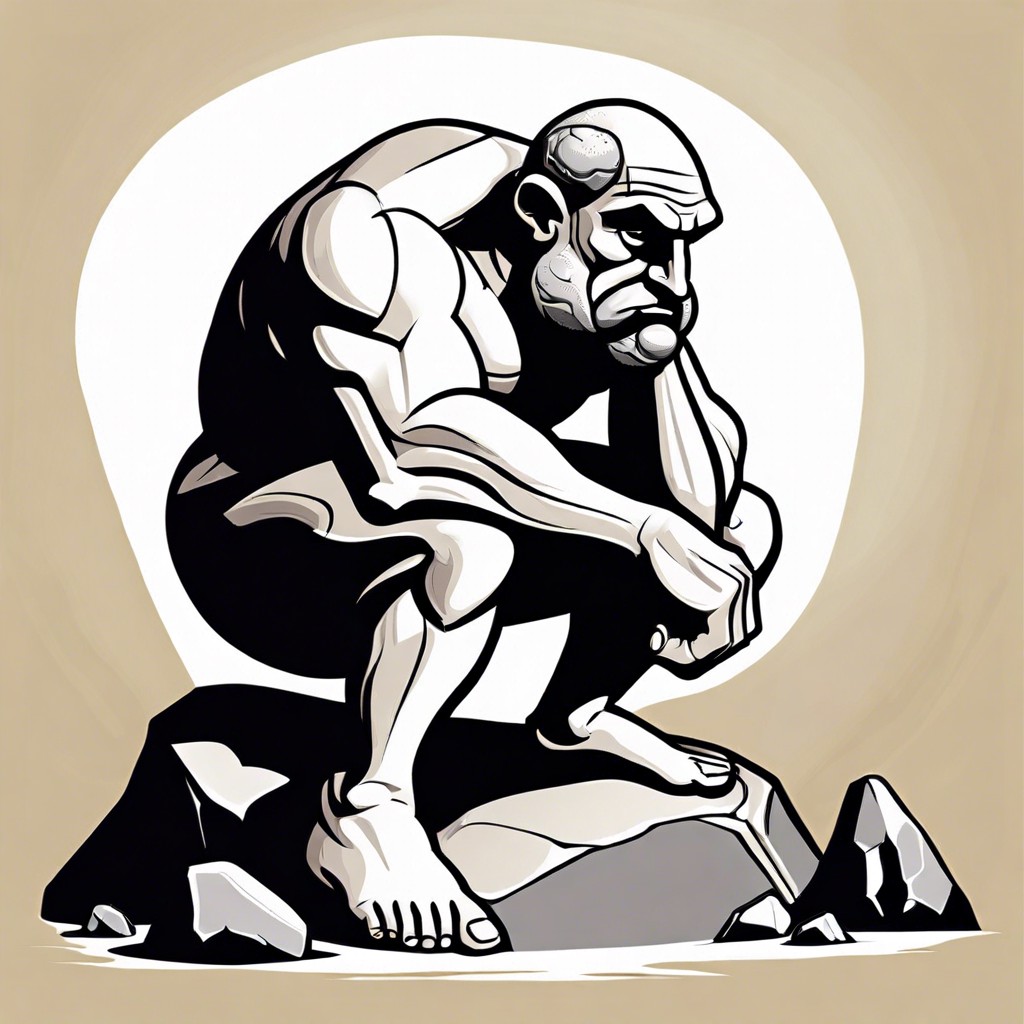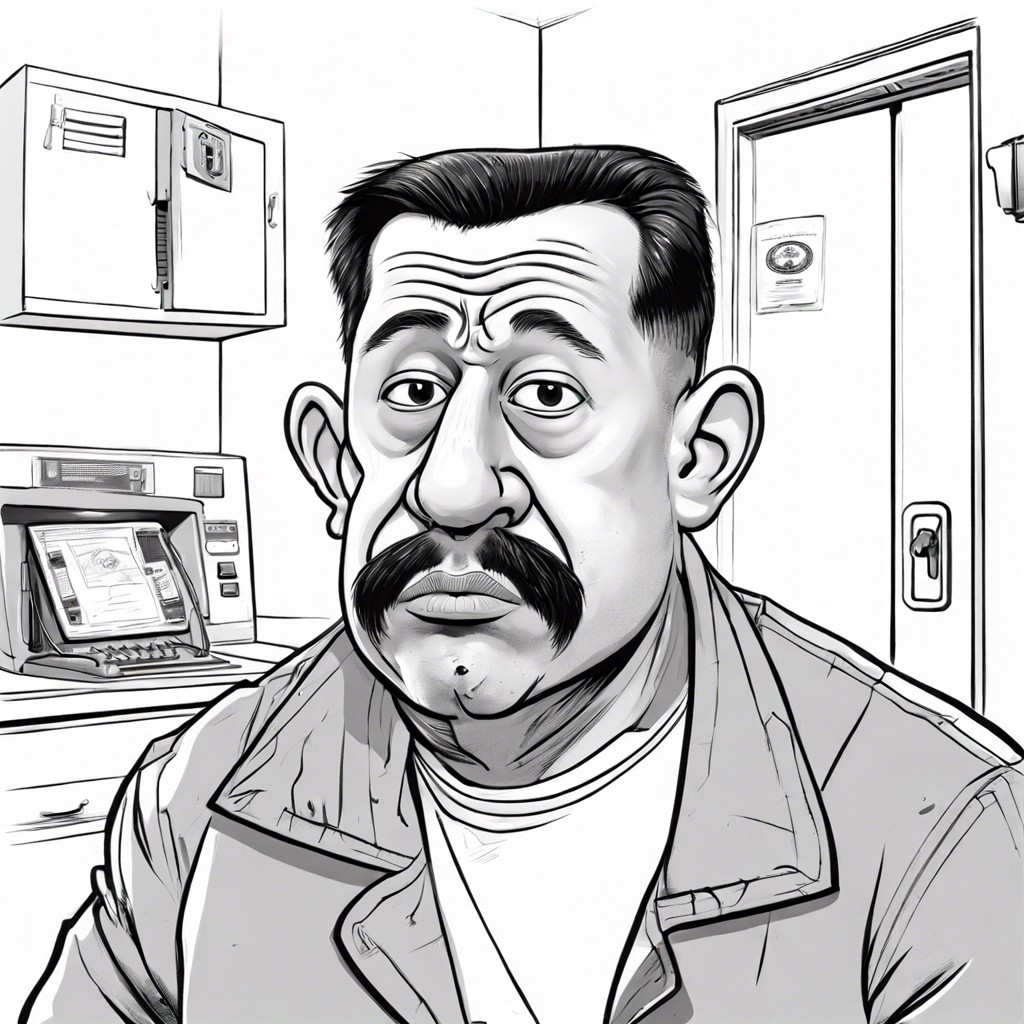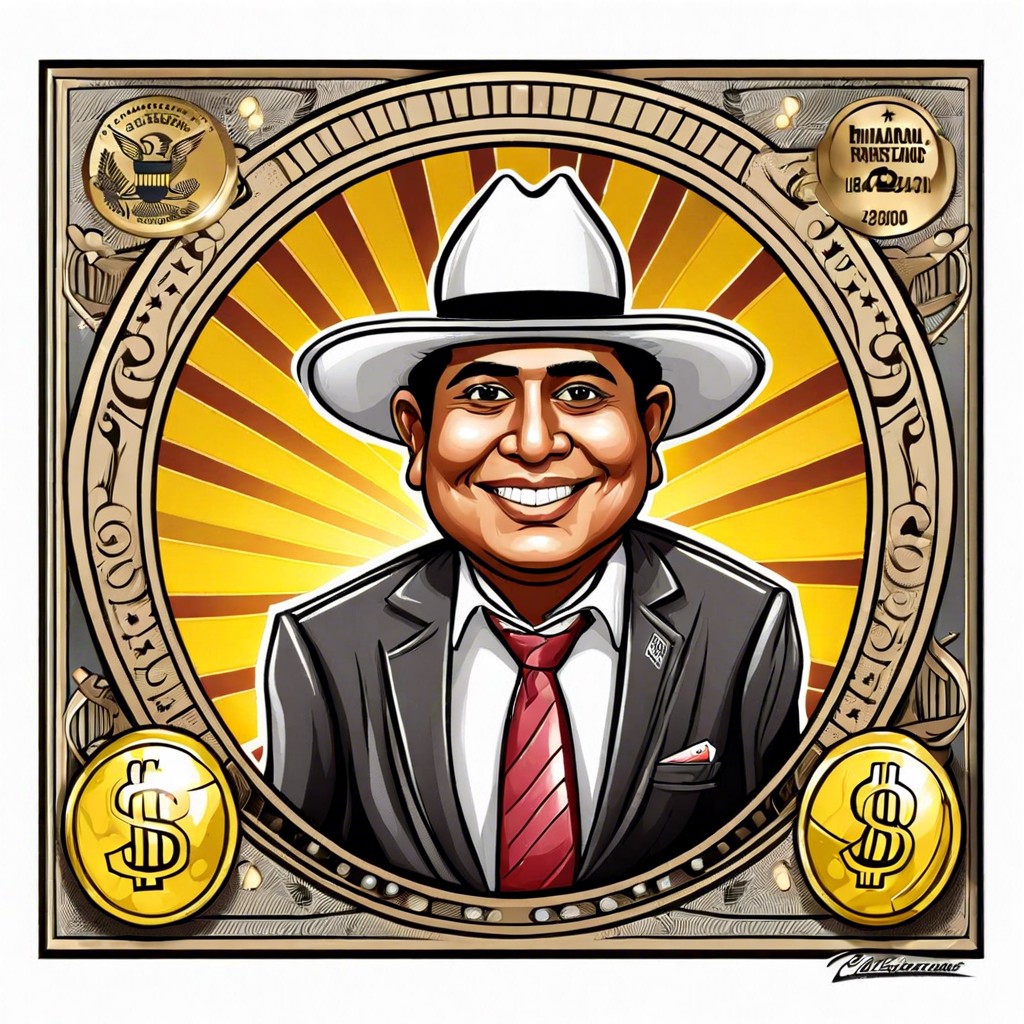You will learn what might happen if Sisyphus decided to stop pushing his rock.
Imagine Sisyphus, our eternally boulder-pushing hero, suddenly halting and throwing up his hands, declaring, “Enough already!” What would happen if he stopped his endless labor? Unraveling this myth leads us through a labyrinth of consequences, identity crises, deep philosophical debates, and rethinking punishment. And, just for fun, we’ll even slide into how it resonates in our modern hustle-bustle world. Prepare for a boulder-sized revelation or two!
Key takeaways:
- Consequences: Halting disrupts cosmic order and angers gods.
- Identity Crisis: Sisyphus redefines himself without his boulder burden.
- Philosophical Impact: The act challenges meaning, absurdity, and stoicism.
- Punishment’s Essence: Futility and monotony define Sisyphus’s eternal task.
- Modern Lessons: Embrace limits, redefine success, and innovate after pause.
Consequences of Stopping the Eternal Task

Imagine the boulder sitting still on the hillside, no longer an object of toil. Sisyphus, once defined by his relentless task, now finds himself in an existential pickle. What would he do with all that spare time? Take up knitting? Start a podcast? The possibilities boggle the ancient mind.
Then there’s the issue of the gods. They dished out the punishment to keep Sisyphus busy and perpetually frustrated. Stopping means defying their will, which probably won’t earn him any divine brownie points. More thunderbolts, maybe.
And what about the rock itself? Is it sentient? Does it enjoy the ride? It’s now robbed of its upward journey. Even inanimate objects might suffer existential dread, right?
Lastly, the whole underworld dynamic would shift. Other condemned souls might get inspired. If Sisyphus can stop, why can’t they? It could lead to an underworld rebellion. Hades might need a vacation.
So, halting this endless task isn’t just about taking a break. It disrupts cosmic order, irritates gods, and might just incite the first-ever underworld uprising.
Redefining Sisyphus’ Identity
Stopping the relentless uphill grind would force Sisyphus to rethink his existence. Imagine him without the rock—what’s left? Time to pick up hobbies?
First, he’d lose his defining struggle. His fame, if you can call it that, is built on this eternal task. No rock, no Sisyphus as we know him. It would be like Batman without Gotham’s criminal underbelly. Just a rich guy in fancy spandex.
Next, without his boulder, Sisyphus might tackle existential dread. Free time is great until you start pondering the meaning of life. Suddenly, existential crisis becomes the new rock to push!
He could redefine himself, perhaps take up art. Picture Sisyphus swapping the boulder for a paintbrush. Or becoming the first motivational speaker for overcoming monumental challenges.
Most intriguingly, stopping might mean freedom. No longer just a symbol of futile effort, he could evolve into an emblem of change. Though honestly, “Sisyphus: Champion of Adaptation” doesn’t have the same ring.
Finally, without the grind, who could he befriend? Meeting new folks beyond Mount Olympus’ perimeter may redefine his social circle. New social dynamics could reshape his identity.
Suddenly, Sisyphus isn’t merely a figure of myth. He’s a complex character, relatable, and, dare we say, kinda fun?
Philosophical Implications
How would philosophers interpret Sisyphus abandoning his punishment? For one, existentialists might throw a party. Camus famously declared, “One must imagine Sisyphus happy.” But if Sisyphus stopped, would that happiness evaporate, revealing the absurdity of finding meaning in the struggle?
Absurdists could find their minds twisted in knots. If Sisyphus refuses to push his boulder, is he defying or embracing the absurd? Maybe the real absurdity is torturing oneself with endless effort rather than calling it quits.
Stoics might chime in with a stern, “You do you, Sisyphus.” They’d probably applaud his newfound courage to accept his fate—or reject it if it suits his peace better.
If Sisyphus walked away from his boulder, our notions of happiness, meaning, and absurdity could shift dramatically, as our hero embarks on a new quest—one of defiance and self-redefinition.
The Nature of Punishment
Imagine a punishment so perfectly crafted that abandoning it becomes its own form of torture. That’s Sisyphus’ dilemma in a nutshell—or rather, in a boulder.
Punishment in mythology is rarely straightforward. It’s often a mirror reflecting our deepest fears and flaws. Sisyphus, condemned to roll a massive stone uphill only to watch it roll back down every single time, faces more than physical exertion. The essence of his punishment lies in its futility.
Consider the psychological labyrinth here: endless labor with zero reward. The sheer monotony is the real punishment. Think office meetings that could have been emails, but on an Olympian scale.
If Sisyphus stops, the gods don’t win. They lose their masterpiece of cosmic irony. Forced idleness might offer short-lived relief but soon surrender him to an abyss of existential dread.
Detaching from the boulder means exploring new punishments. What if he’s condemned to watch paint dry for all eternity? Familiar torment vs. unknown horrors—Sisyphus might just prefer the devil he knows.
Lessons in Modern Context
First off, think about your daily grind. Your 9-to-5 job, endless errands, the never-ending laundry. Imagine if you just stopped. Sounds radical, right? But what could we learn from such a bold move?
- Embrace Your Limits: Sometimes, pushing against the same boulder day in and day out gets you nowhere. Recognizing your limits can help prioritize efforts where they actually matter.
- Redefine Success: Stopping the grind could force a rethink of what success looks like. Spoiler alert: It might not always be about climbing the corporate ladder.
- Sustainable Hustle: In a world obsessed with perpetual motion, taking a pause can lead to more sustainable ways of working and living. Hello, work-life balance!
- Question Tradition: Society has a funny way of enforcing norms. By stepping back, you open up the dialogue on whether certain routines are worth continuing.
- Creative Solutions: Lack of progress often sparks innovation. Finding new ways to tackle old problems may just need a moment of stillness.




